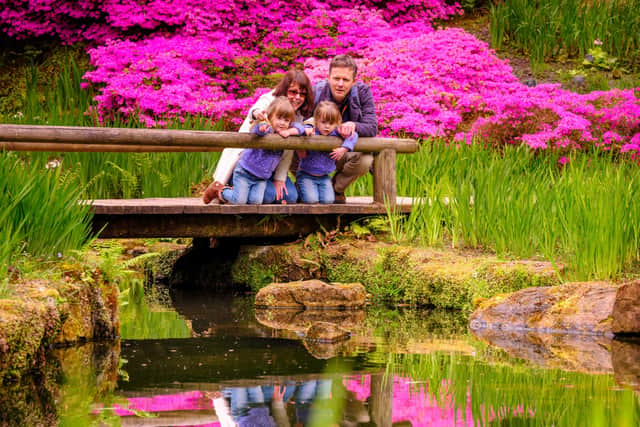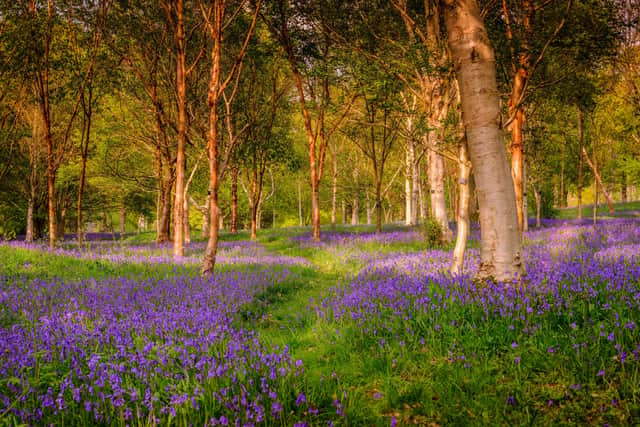Wakehurst visitors asked to wear heart rate monitors for major new biodiversity study
and live on Freeview channel 276
The venue, which is also home to the Millennium Seed Bank, is set to become a ‘living laboratory’ for RBG Kew’s research to mark the International Day for Biological Diversity on May 22.
It forms part of Nature Unlocked, the landscape ecology programme launched by RBG Kew in 2021, and is led by Royal Holloway University of London’s Professor Dawn Watling and Wakehurst’s head of public programmes Lorraine Lecourtois.
Advertisement
Hide AdAdvertisement
Hide AdEd Ikin, director of Wakehurst said: “Biodiverse landscapes have benefits for all of us: cleaner air and water, sustainable food and carbon storage.


“They can also make us happy, satisfying our need for visual stimulation, colour and shelter.”
He said the research aims to show why biodiversity matters, providing evidence to help people make better decisions and encourage people to care for nature.
“Our Landscape Ecology Programme is founded on partnerships, and we’re excited to see Royal Holloway University of London’s expertise unlocking why Wakehurst’s biodiverse landscape benefits so many people,” he added.
Advertisement
Hide AdAdvertisement
Hide AdOn arrival, participants will fill in brief questionnaires to establish their mood before they get a heart rate variability monitor to wear on their wrist.


They will also get a mobile phone to track their movements.
After a 45-minute walk, visitors will complete another questionnaire along with other questions that measure the feelings they experienced when spending time in nature and how they feel after the walk.
Royal Holloway researchers will then use the data, which will be gathered over six months, to assess the impact of individual landscapes, and how this might differ by age.
RBG Kew and Royal Holloway researchers hope that this will provide evidence on how people can design landscapes to improve wellbeing, from green spaces at home, to major government-funded planting schemes.
Advertisement
Hide AdAdvertisement
Hide AdIt could also give GPs evidence to support recommendations for spending time in outdoor spaces.
Wakehust aims to gather responses from more than 1,000 younger visitors too for an accompanying study developed in partnership with 36 schools near the garden.
A Wakehurst spokesperson said: “Over the past year, Nature Unlocked has seen Wakehurst become a ‘living laboratory’ for Kew scientists, researching the value of UK biodiversity to inform nature-based solutions to critical challenges such as climate change and food security.”
The new study will run from May until November.